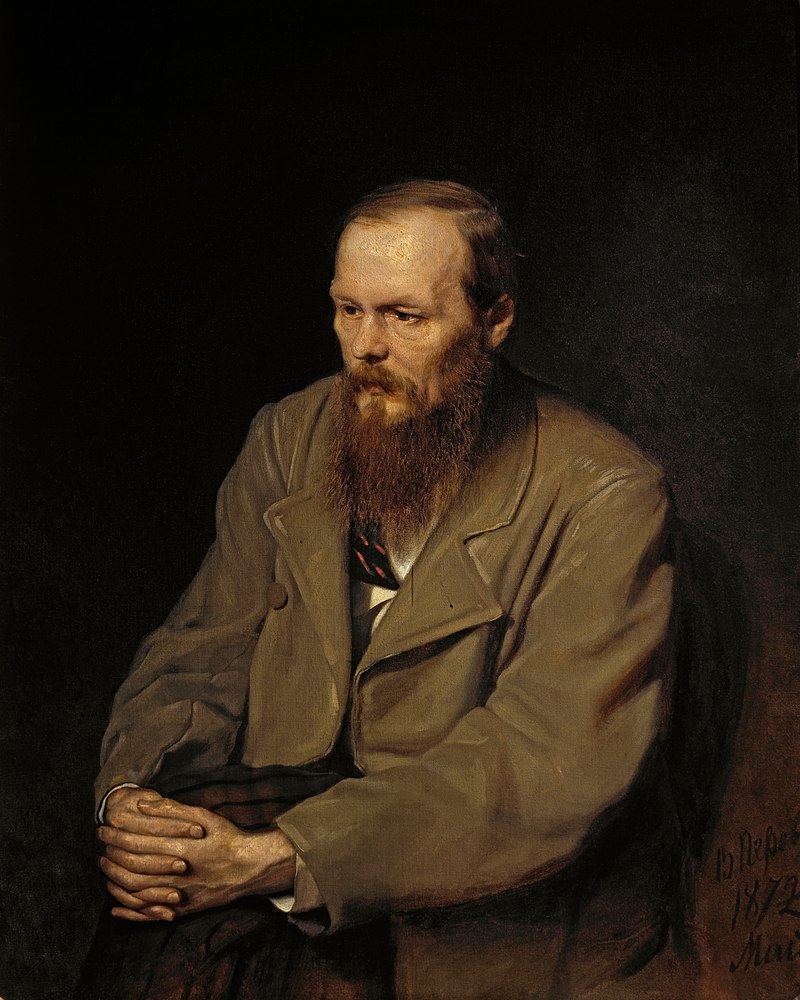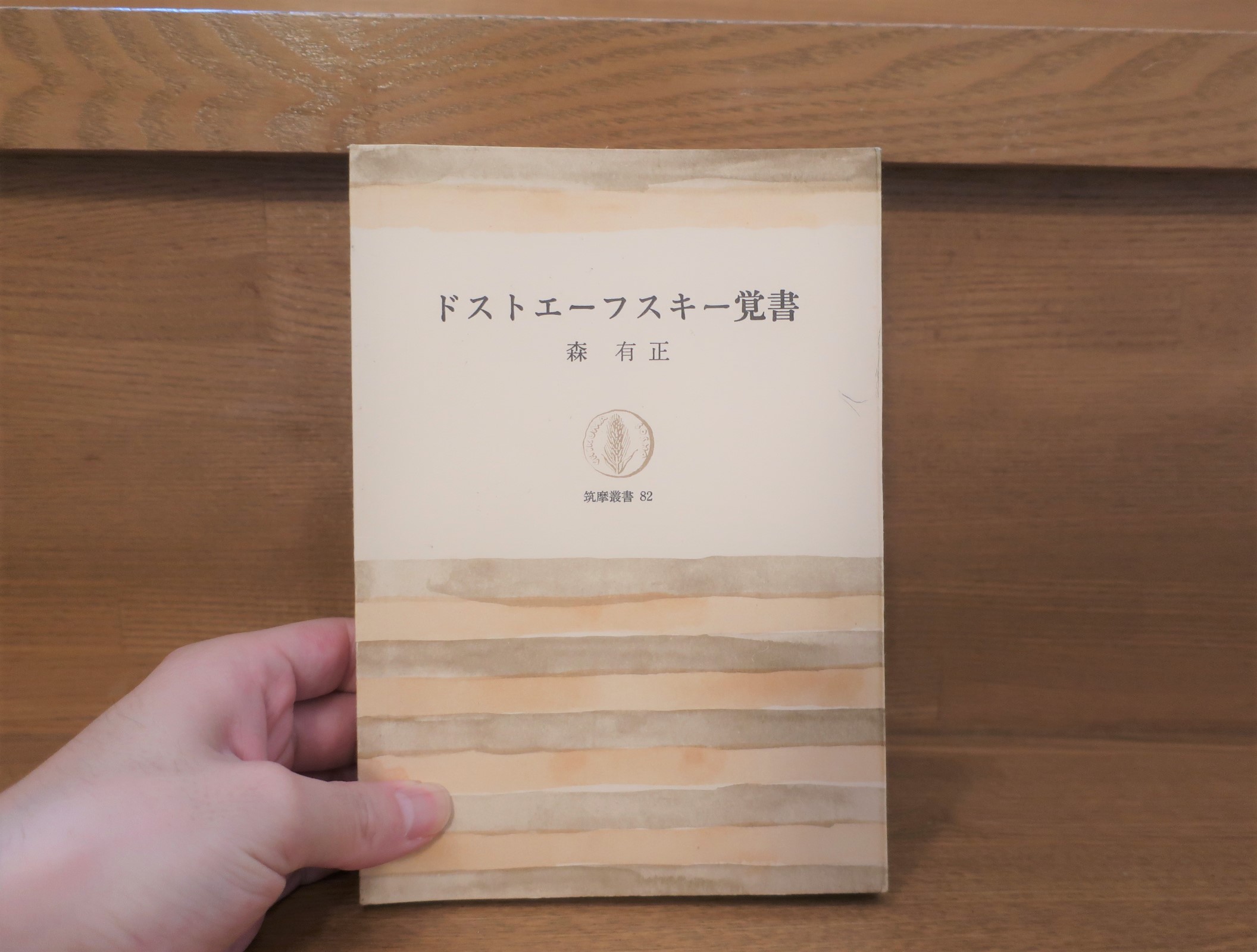Overview and Impressions of Arimasa Mori's "Dostoevsky Memorandum" - A Masterpiece of Dostoevsky's Theory by a Leading Japanese French Literature Scholar

Today, I would like to introduce "Dostoevsky Memorandum" by Arimasa Mori, published by Chikuma Sosho. (*This book in my possession is the Chikuma Sosho edition published in 1967, but a new edition was also published by Chikuma Gakugei Bunko in 2012)
Let's take a quick look at the book.
Dostoevsky's literature still shakes our souls. Why is it that from the moment we open the first page of this lengthy work, we are drawn in without knowing it? I published this book because of the ideological pull that drew me to Dostoevsky. By ideological, I mean the power to enter directly into human reality and grasp its core. The author examines guilt in "Crime and Punishment," despair and death in "Evil Spirits," freedom and love in "The Brothers Karamazov," goodness in "The Moron," and discovers "man" in "Death House Records. His deeply insightful "readings" are the best guides to savor the world of his works.
AmazonProducts Page.
Arimasa Mori, born in 1911, is one of Japan's leading scholars of French literature.
After working as an assistant professor at the University of Tokyo, he moved to France, where he taught at the School of Oriental Languages at the University of Paris.
He was baptized in 1913, shortly after his birth, and became a Christian, so he has a deep understanding of Christianity, which can be seen in the "Dostoevsky Memorandum".
This work is characterized by the fact that it is a "memorandum," as stated in the title. Arimasa Mori freely writes about his thoughts on Dostoevsky. In his postscript, he describes his motivation for writing this book as follows
This book is literally a poor "note" on Dostoevsky's work. I am afraid that it would be extremely presumptuous of me, a man of a different specialty and without an understanding of the original text, to make such a "memorandum" public.
Of course, this is not a systematic Dostoevsky study. There may be many errors and misunderstandings. However, my mind was completely captured by him.
Dostoevsky opened up a whole new spiritual dimension for me: about God, about man, about society, and even about nature. It was a marvelous view. For me, it never occurred to criticize him. I can only retrace my poor steps, step by step, drawn by the depth of his soul, which is both astonishingly huge and infinitely subtle.
Chikuma Sosho Publishing, Mori Arimasa, "Dostoevsky Memorandum," p. 257
Arimasa Mori's sincere feelings toward Dostoevsky can be felt.
In this "Dostoevsky Memorandum," he will discuss "Crime and Punishment," "Evil Spirits," "The Brothers Karamazov," "Moron," and "Death House Records. As he states in his afterword, this is neither a commentary on the works nor an introduction to their contents.
The book describes the view of Dostoevsky by Arimasa Mori, a French literature scholar with a deep knowledge of Western philosophy.
As soon as you open the book, you will see more and more familiar figures and ideas of Western philosophy, such as nihilism, the Renaissance, Descartes, Kant, Hegel, Pascal, Kierkegaard ......, etc.
This was quite a formidable development for me, as I am not a fan of Western thought.
The revised afterword also states
I am neither a specialist in Dostoevsky nor an expert on Russian literature. My decision to publish this book immediately after the war was not based on academic or literary interest, but rather on the ideological pull that drew me to Dostoevsky.
When I say "ideological," I am not referring to a system of knowledge, of course, but rather to the strength to enter directly into human reality and grasp its core without being bothered by superficial things. (omitted).
This poor book is a very "subjective" statement of Dostoevsky's literature as a reader, which struck me as I was groping in a kind of bizarre post-defeat mentality, riddled with ideology.
Chikuma Sosho Publishing, Mori Arimasa, "Dostoevsky Memorandum," p. 259
Arimasa Mori describes in this book his thoughts on Dostoevsky that come from himself.
It is a confrontation with Dostoevsky, not simply for the sake of knowledge or study, but as a real-life problem that Arimasa Mori faces in his own life.
This book is a tough introduction to Dostoevsky for those who want to know the synopsis and commentary of his works, but it is a great book for those who want to think about Dostoevsky in more depth.
The above is "Arimasa Mori's "Dostoevsky Memorandum" - A famous book on Dostoevsky by one of Japan's leading French writers.
Click here for the Dostoevsky Database
.Dostoevsky Chronology and List of Works - A quick look at Dostoevsky's life
.List of recommended Dostoevsky biographies - Read the biography and you will love Dostoevsky.
.List of recommended Dostoevsky commentaries - Read this to make Dostoevsky's works more interesting!
.List of recommended commentaries on Dostoevsky and Christianity - What you should know about Dostoevsky if you are interested in him!
Next Article.
Related Articles







































